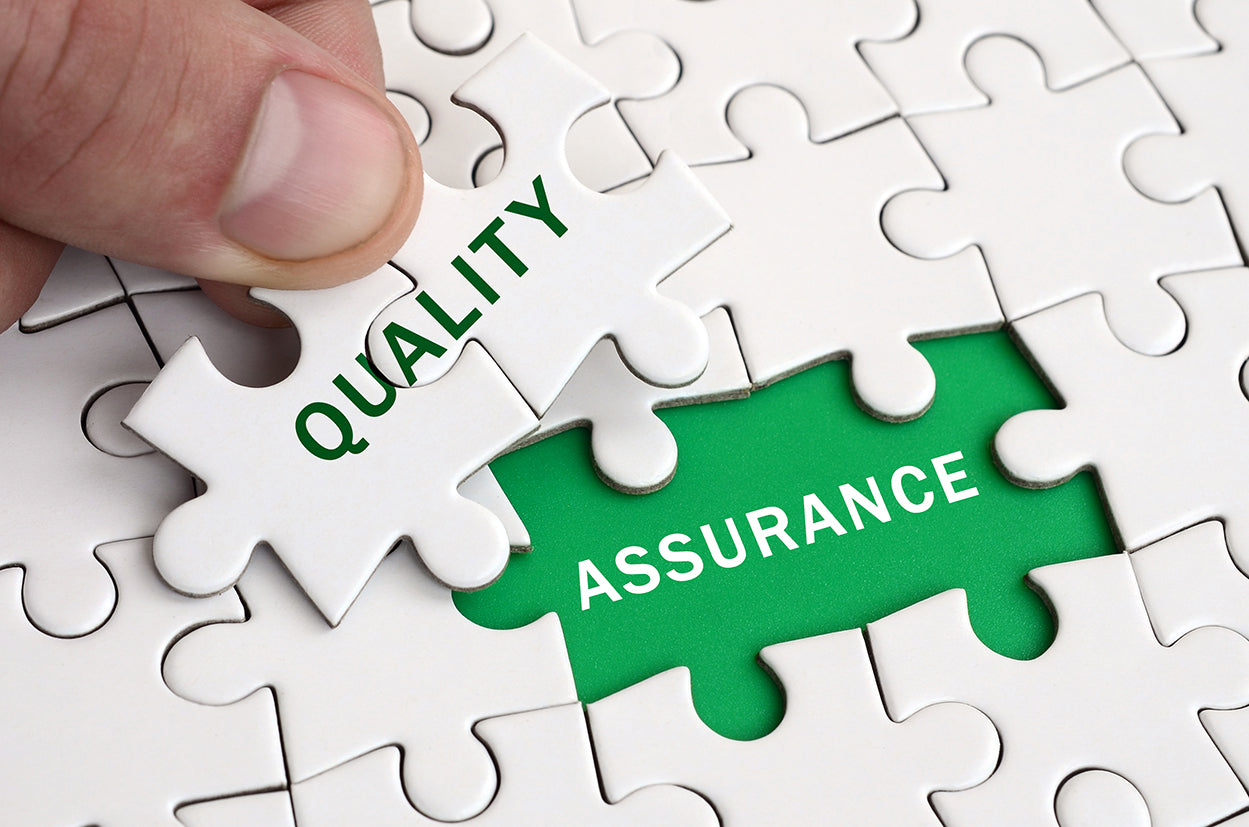You have no items in your shopping basket.
Clinical governance in practice
Enhancing healthcare excellence: Master governance, patient safety and quality with ComplyPlus LMS™
Dr Richard Dune
27-02-2024
In the intricate world of healthcare, clinical governance stands as the cornerstone of excellence, ensuring that patient safety and quality care are not just aspirations but realities. Clinical governance, a framework through which healthcare organisations are held accountable for continuously improving the quality of their services, is fundamental to creating an environment where excellence in clinical care can thrive. This blog delves into the essence of clinical governance, exploring its role in governance, patient safety, and quality within healthcare settings.
The foundation of clinical governance
Clinical governance is an all-encompassing approach that integrates various components of healthcare delivery to ensure the highest standards of care. At its core, it involves monitoring systems and processes to assure patient safety and quality of care across the organisation. This multifaceted framework includes audit and monitoring, quality and safety performance, patient safety, environmental cleanliness and infection prevention and control (IPC).

Image by DC_Studio via Envato Elements

Image by Mehaniq41 via Envato Elements
Audit and monitoring - The assurance of quality care
Audit and monitoring are critical pillars of clinical governance, offering real-time feedback and fostering a culture of continuous improvement. Matrons and healthcare leaders play a pivotal role in conducting audits on the ward environment, patient experience, infection prevention, and other vital metrics. These audits ensure that wards and departments deliver safe, high-quality care and facilitate trust-wide improvement by sharing learnings from incidents and developing action plans.
Quality and safety performance - Beyond compliance
In healthcare, quality encompasses patient experience, safety, and clinical effectiveness. It is a key marker of operational performance. Matrons monitor quality using scorecards, developing plans to address areas of improvement. This proactive approach to quality and safety performance emphasises compliance with regulatory standards and a commitment to exceeding them, ensuring the best possible patient outcomes.

Image by AnnaStills via Envato Elements

Image by piasupuntongpool via Envato Elements
Patient safety - Everyone's business
The ambition to become the safest healthcare system globally underscores the importance of patient safety within clinical governance. It's a shared responsibility, from understanding patient safety and incident management systems to implementing the NHS patient safety strategy. National priorities for patient safety encourage participation in collaborative programs and response to safety agendas, illustrating a collective effort to reduce risk and minimise mistakes.
Environmental cleanliness and IPC - Safeguarding health
Matrons and healthcare leaders are also pivotal in ensuring environmental cleanliness and adhering to IPC measures. From overseeing cleaning responsibilities to leading hand hygiene audits and ensuring compliance with IPC-related policies, these efforts are crucial in reducing healthcare-associated infections and ensuring the safety of patients, families, and carers.

Image by DisobeyArtPh via Envato Elements

Image by Daenin via Envato Elements
Overcoming challenges with effective governance
Implementing effective clinical governance presents challenges, including the complexity of healthcare services, human factors, and the evolving nature of technology and regulations. However, healthcare organisations can overcome these obstacles by embracing a culture of safety, investing in staff education, and engaging patients and families in their care.
Fostering a culture of safety and continuous improvement
Creating a culture that prioritises safety and continuous improvement is essential for the success of clinical governance. This involves leadership commitment, transparency, and an organisational mindset that views mistakes as opportunities for learning and growth.

Image by halfpoint via Envato Elements

Image by nd3000 via Envato Elements
Engaging patients and families in their care
Patient and family engagement is crucial in enhancing patient safety and care quality. By involving them in care planning and decision-making, healthcare providers can gain valuable insights into patient needs and preferences, further enriching the patient experience.
The path forward
The future of healthcare quality and safety lies in the steadfast implementation of clinical governance. Through continuous audit and monitoring, a relentless focus on quality and safety performance, unwavering commitment to patient safety, and rigorous adherence to environmental cleanliness and IPC standards, healthcare organisations can deliver exceptional care.

Image by Wavebreakmedia via Envato Elements

Image by YuriArcursPeopleimages via Envato Elements
Embracing technology and innovation
Leveraging technology and innovation can enhance aspects of clinical governance, from improving audit data collection to facilitating better communication among healthcare teams and patients. However, it's crucial to balance technological advancements with the need for human oversight and compassionate care.
Leadership and collaboration
Strong leadership and collaboration across all levels of healthcare are pivotal in driving the success of clinical governance. Leaders must champion the principles of clinical governance, fostering an environment where staff feel supported, valued, and motivated to contribute to the organisation's quality and safety goals.

Image by sofiiashunkina via Envato Elements
Image by Rawpixel via Envato Elements
Conclusion
Clinical governance is not just a framework but a philosophy permeating every aspect of healthcare delivery. It represents a comprehensive approach to ensuring that patient safety, quality care, and continuous improvement are ingrained in the fabric of healthcare organisations. As we move forward, the principles of clinical governance will continue to guide healthcare providers towards achieving excellence in patient care, safeguarding the health and well-being of the communities they serve. In this journey toward excellence, embracing the challenges, celebrating the successes, and learning from the setbacks will be vital to fostering an environment where clinical governance can flourish, impacting the quality and safety of patient care.
In the intricate world of healthcare, clinical governance stands as the cornerstone of excellence, ensuring that patient safety and quality care are not just aspirations but realities. Clinical governance, a framework through which healthcare organisations are held accountable for continuously improving the quality of their services, is fundamental to creating an environment where excellence in clinical care can thrive. This blog delves into the essence of clinical governance, exploring its role in governance, patient safety, and quality within healthcare settings.
The foundation of clinical governance

Image by DC_Studio via Envato Elements
Clinical governance is an all-encompassing approach that integrates various components of healthcare delivery to ensure the highest standards of care. At its core, it involves monitoring systems and processes to assure patient safety and quality of care across the organisation. This multifaceted framework includes audit and monitoring, quality and safety performance, patient safety, environmental cleanliness and infection prevention and control (IPC).
Audit and monitoring - The assurance of quality care

Image by Mehaniq41 via Envato Elements
Audit and monitoring are critical pillars of clinical governance, offering real-time feedback and fostering a culture of continuous improvement. Matrons and healthcare leaders play a pivotal role in conducting audits on the ward environment, patient experience, infection prevention, and other vital metrics. These audits ensure that wards and departments deliver safe, high-quality care and facilitate trust-wide improvement by sharing learnings from incidents and developing action plans.
Quality and safety performance - Beyond compliance

Image by AnnaStills via Envato Elements
In healthcare, quality encompasses patient experience, safety, and clinical effectiveness. It is a key marker of operational performance. Matrons monitor quality using scorecards, developing plans to address areas of improvement. This proactive approach to quality and safety performance emphasises compliance with regulatory standards and a commitment to exceeding them, ensuring the best possible patient outcomes.
Patient safety - Everyone's business

Image by piasupuntongpool via Envato Elements
The ambition to become the safest healthcare system globally underscores the importance of patient safety within clinical governance. It's a shared responsibility, from understanding patient safety and incident management systems to implementing the NHS patient safety strategy. National priorities for patient safety encourage participation in collaborative programs and response to safety agendas, illustrating a collective effort to reduce risk and minimise mistakes.
Environmental cleanliness and IPC - Safeguarding health

Image by DisobeyArtPh via Envato Elements
Matrons and healthcare leaders are also pivotal in ensuring environmental cleanliness and adhering to IPC measures. From overseeing cleaning responsibilities to leading hand hygiene audits and ensuring compliance with IPC-related policies, these efforts are crucial in reducing healthcare-associated infections and ensuring the safety of patients, families, and carers.
Overcoming challenges with effective governance

Image by Daenin via Envato Elements
Implementing effective clinical governance presents challenges, including the complexity of healthcare services, human factors, and the evolving nature of technology and regulations. However, healthcare organisations can overcome these obstacles by embracing a culture of safety, investing in staff education, and engaging patients and families in their care.
Fostering a culture of safety and continuous improvement

Image by halfpoint via Envato Elements
Creating a culture that prioritises safety and continuous improvement is essential for the success of clinical governance. This involves leadership commitment, transparency, and an organisational mindset that views mistakes as opportunities for learning and growth.
Engaging patients and families in their care

Image by nd3000 via Envato Elements
Patient and family engagement is crucial in enhancing patient safety and care quality. By involving them in care planning and decision-making, healthcare providers can gain valuable insights into patient needs and preferences, further enriching the patient experience.
The path forward

Image by Wavebreakmedia via Envato Elements
The future of healthcare quality and safety lies in the steadfast implementation of clinical governance. Through continuous audit and monitoring, a relentless focus on quality and safety performance, unwavering commitment to patient safety, and rigorous adherence to environmental cleanliness and IPC standards, healthcare organisations can deliver exceptional care.
Embracing technology and innovation

Image by YuriArcursPeopleimages via Envato Elements
Leveraging technology and innovation can enhance aspects of clinical governance, from improving audit data collection to facilitating better communication among healthcare teams and patients. However, it's crucial to balance technological advancements with the need for human oversight and compassionate care.
Leadership and collaboration

Image by sofiiashunkina via Envato Elements
Strong leadership and collaboration across all levels of healthcare are pivotal in driving the success of clinical governance. Leaders must champion the principles of clinical governance, fostering an environment where staff feel supported, valued, and motivated to contribute to the organisation's quality and safety goals.
Conclusion
Image by Rawpixel via Envato Elements
Clinical governance is not just a framework but a philosophy permeating every aspect of healthcare delivery. It represents a comprehensive approach to ensuring that patient safety, quality care, and continuous improvement are ingrained in the fabric of healthcare organisations. As we move forward, the principles of clinical governance will continue to guide healthcare providers towards achieving excellence in patient care, safeguarding the health and well-being of the communities they serve. In this journey toward excellence, embracing the challenges, celebrating the successes, and learning from the setbacks will be vital to fostering an environment where clinical governance can flourish, impacting the quality and safety of patient care.
Related blog articles
View allRelated blog articles
View all
About The Mandatory Training Group
The Mandatory Training Group is one of the leading UK providers of CPDUK-accredited statutory and mandatory training, continuing professional development (CPD) courses, eLearning software and workforce development solutions for all sectors.
By making things simple and designing interactive e-learning content, we can provide meaningful training programs at all levels and enhance the capacity and resilience of individuals and organisations.
Click here to see our wide range of accredited clinical skills courses and training programmes.
About The Mandatory Training Group

The Mandatory Training Group is one of the leading UK providers of CPDUK-accredited statutory and mandatory training, continuing professional development (CPD) courses, eLearning software and workforce development solutions for all sectors.
By making things simple and designing interactive e-learning content, we can provide meaningful training programs at all levels and enhance the capacity and resilience of individuals and organisations.
Click here to see our wide range of accredited clinical skills courses and training programmes.
Contact us
Complete the form below to start your ComplyPlus trial and transform your regulatory compliance solutions.







